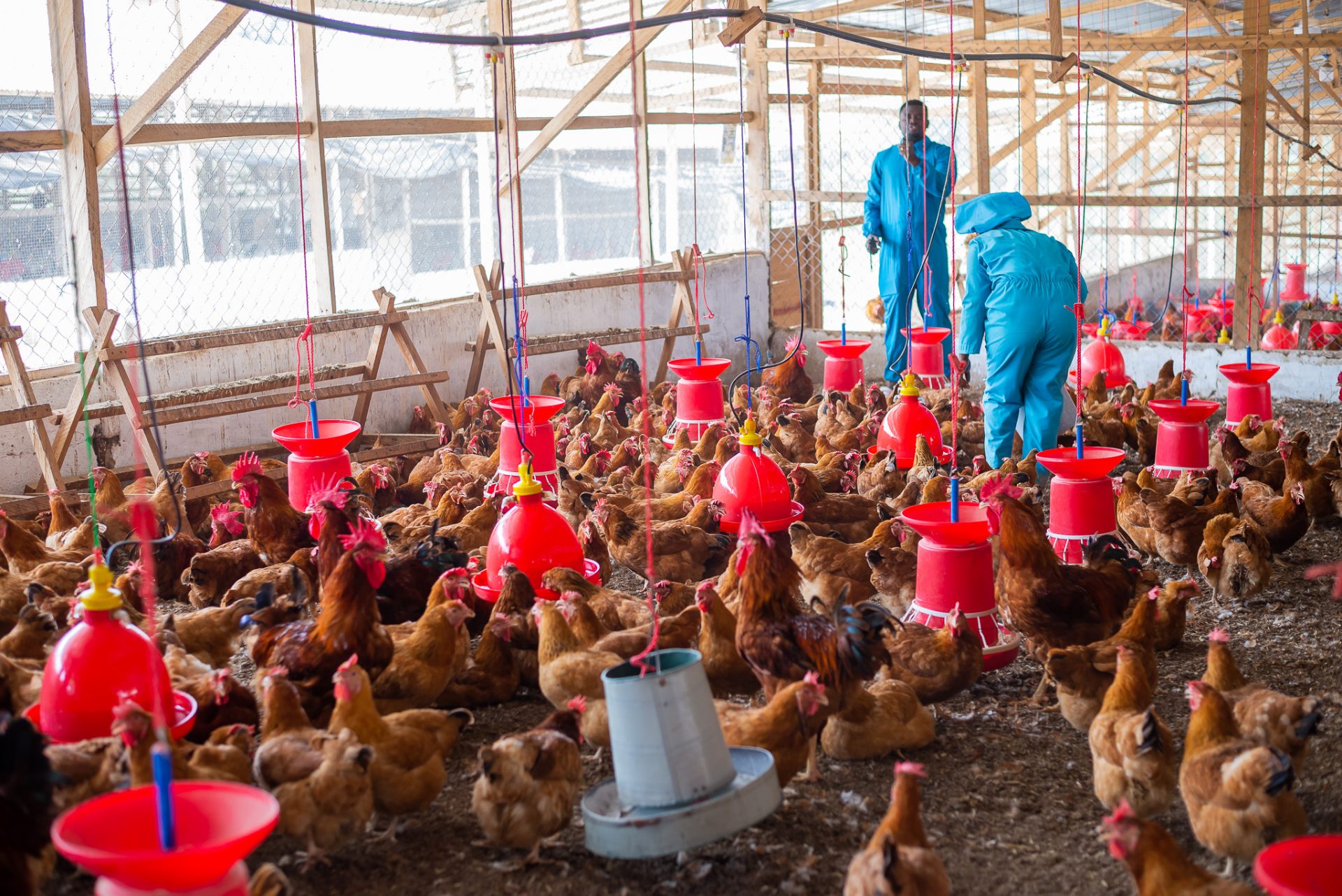Ghana’s poultry industry, once a strong pillar of the country’s food security and rural employment, has declined significantly over the past two decades. The local market has been flooded with cheap imported chicken, particularly from Europe, the United States, and Brazil. These imports now account for over 90% of poultry consumed in Ghana, forcing many local poultry farmers out of business. The economic and social impact has been profound, undermining livelihoods, reducing agricultural productivity, and increasing dependence on foreign markets for basic protein sources.
To counter this growing dependency, Ghana has set an ambitious goal: to substitute at least 25% of imported chicken, equivalent to producing about 100,000 metric tonnes of poultry meat annually. Achieving this target would require the local industry to raise approximately 67 million broiler chickens per year, or roughly 1.28 million birds weekly. Each broiler would have to weigh about 2.08 kilograms live, yielding around 1.5 kilograms of processed meat. This effort is not only a matter of production but also of overhauling the entire poultry value chain.
One of the biggest hurdles to increasing poultry production is the cost and availability of feed. Raising 67 million birds would demand approximately 222,000 metric tonnes of feed annually, which includes about 133,000 metric tonnes of maize and 78,000 metric tonnes of soya meal. To reduce feed costs and ensure sustainability, the government must support domestic maize and soya production. This can be done through targeted subsidies, improved seed distribution, modern farming practices, and investment in post-harvest storage systems to reduce losses.
Another critical area needing government attention is hatchery infrastructure. Producing 1.35 million day-old chicks each week requires reliable access to over 1.6 million fertile eggs. Unfortunately, many existing hatcheries operate with outdated equipment and limited capacity. The government should encourage investment in modern hatchery facilities, support the establishment of breeder farms, and ensure quality control through biosecurity regulations and certification standards.
Processing capacity also poses a major constraint. To handle the projected increase in chicken supply, Ghana would need at least 40 modern poultry processing plants, each capable of handling about 2,000 birds per hour. Currently, processing is largely informal and unregulated, with poor hygiene standards and inadequate cold-chain infrastructure. Public-private partnerships, supported by tax incentives and government-backed loans, are essential to upgrade slaughterhouses and expand cold storage facilities across the country.
Policy and trade regulations will play a decisive role in reviving the sector. Import restrictions, or at least a phased approach to limiting frozen chicken imports, would help protect local producers while they scale up. Additionally, introducing national school feeding and hospital procurement programs that prioritize locally sourced chicken could significantly boost demand for Ghanaian poultry products.
Strengthening farmer cooperatives and industry associations is also vital. At present, many poultry farmers operate in isolation, lacking bargaining power and access to affordable inputs or markets. The government can assist by training cooperative leaders, improving financial management within associations, and creating platforms for farmers to collaborate on shared infrastructure projects and bulk purchasing of feed and medicine.
Lastly, access to finance remains a major challenge. Raising poultry on a large scale requires significant investment in housing, equipment, feed, and veterinary services. Blended finance models that combine public funding with private capital, credit guarantees, and grant schemes can help de-risk poultry investments and attract new entrepreneurs, especially youth and women. Furthermore, comprehensive training programs on animal husbandry, disease control, and agribusiness management would ensure that new entrants to the sector are well-prepared for success.
A successful poultry revival in Ghana depends on strong leadership, clear policy direction, and inclusive stakeholder collaboration. With the right government support, Ghana has the potential to not only substitute a quarter of its poultry imports but to also create jobs, build resilience in food systems, and reclaim a sense of national agricultural pride.



